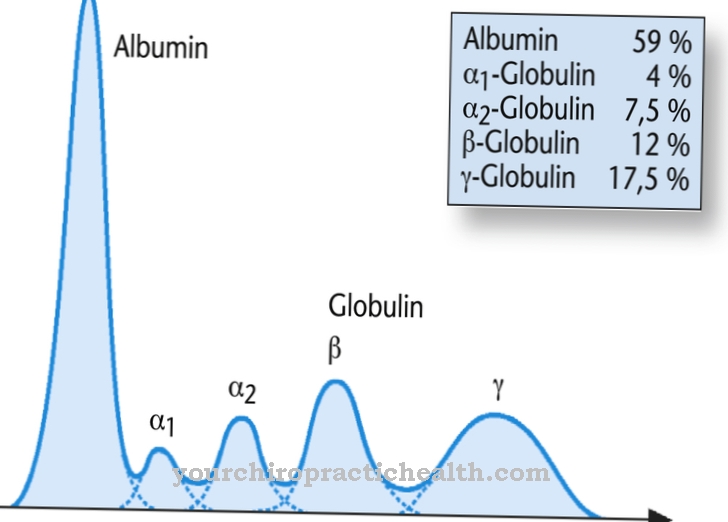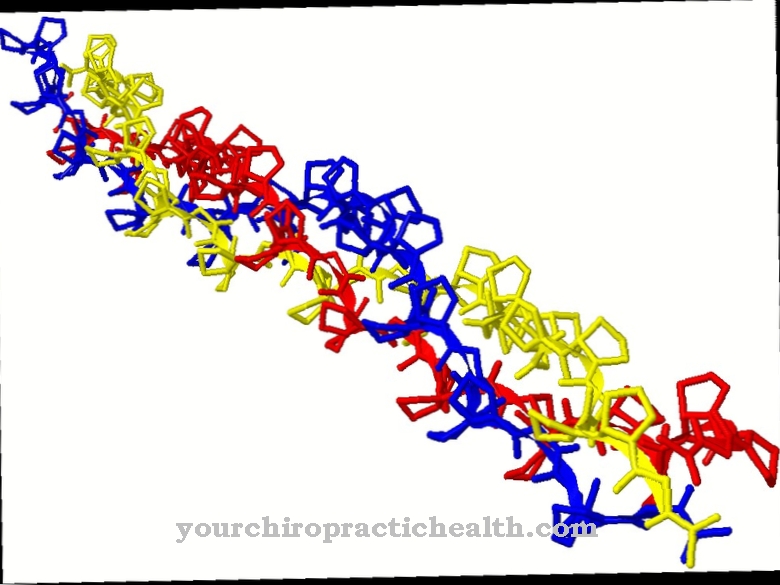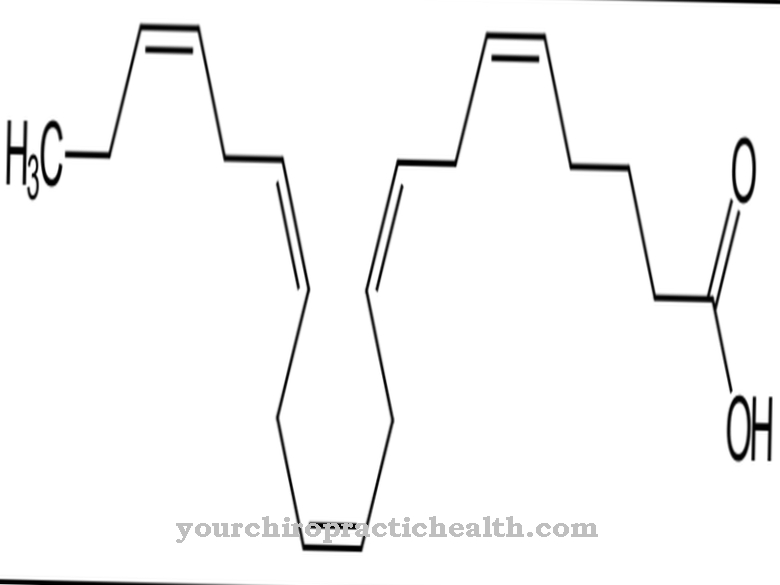Hormones play an important role in the human body. As messenger substances, hormones are involved in initiating and regulating various body processes. Hormonal impairments can cause various diseases.
What are hormones

Hormones are the body's own messenger substances. Hormones are released and produced by cells that specialize in this task. These specialized cells are found in different areas of the body.
These include, for example, various glands (organs that produce hormones and release them into the bloodstream) such as the thyroid, adrenal glands, pancreas or the so-called pituitary gland (also known as the pituitary gland in medicine).
According to medical classifications, the large number of different hormones in the human body is divided into the so-called fat-soluble and water-soluble hormones: while fat-soluble hormones are able to penetrate cells, water-soluble hormones cannot. Some important fat-soluble hormones are thyroid hormones or steroid hormones, which also include sex hormones.
Meaning & function
As chemical messengers Hormones the important task of conveying information between different parts of the body. In addition, hormones are responsible for regulating various body processes; for example for regulating blood pressure, the water balance or the blood sugar level.
One of the important hormones produced in the brain is growth hormone. This hormone has an important lifelong function for growth, but also for metabolism and reproductive processes. Other hormones formed in the brain have important functions in a woman's pregnancy or in regulating the body's own cortisone production, for example.
Insulin is an important part of the hormones produced in the pancreas. Insulin helps regulate the amount of blood sugar and is able to lower blood sugar levels. Various hormones that are produced in the thyroid are important in the human body for the regulation of carbohydrate or fat metabolism. In addition, some thyroid hormones cause various organs to consume more oxygen, which is important in providing the body with the energy it needs.
Various hormones produced by the adrenal glands, such as the well-known adrenaline, are so-called stress hormones that cause the heart to rise and the muscles to be supplied with more blood. This effect of the hormones is used, for example, to be able to flee or defend oneself in dangerous situations.
Well-known sex hormones that are produced in the ovaries of women and the testicles of men include the hormones estrogen and testosterone. These hormones are responsible, for example, for the development of typical sexual characteristics and for the regulation of sexual functions.
Diseases
An unrestricted function of the various Hormones and thus the hormonal balance of the human body is possible due to diverse feedback processes. Because of their complexity, however, these feedback processes of the hormones are very susceptible to interference. If corresponding disorders occur, this can lead to diseases in the body.
An intact interaction of the various hormones can be limited, among other things, by damage to the organs that produce and release the hormones or to the organs that are regulated by the corresponding hormones. Malignant tumors can also affect the budget of the various hormones, as these tumors are able to produce hormones on their own.
In so-called hormonal diseases, various glands in the human body that are involved in hormone production are usually affected. The consequences can be, for example, under- or over-functioning of the corresponding glands. If, for example, the thyroid gland does not produce enough hormones, a benign enlargement of the thyroid gland (goiter) can occur. If, on the other hand, too few hormones are produced, the result can be so-called 'hot knots'.
Most of the hormonal diseases that develop in the adrenal glands include benign tumors that independently produce hormones (so-called adenomas). As a result, too many hormones are produced, which can lead to diseases such as Cushing's syndrome, for example. Corresponding symptoms include high blood pressure and osteoporosis. Depending on the type of hormonal disease, therapy can include medication or, if necessary, appropriate surgical measures.



.jpg)























